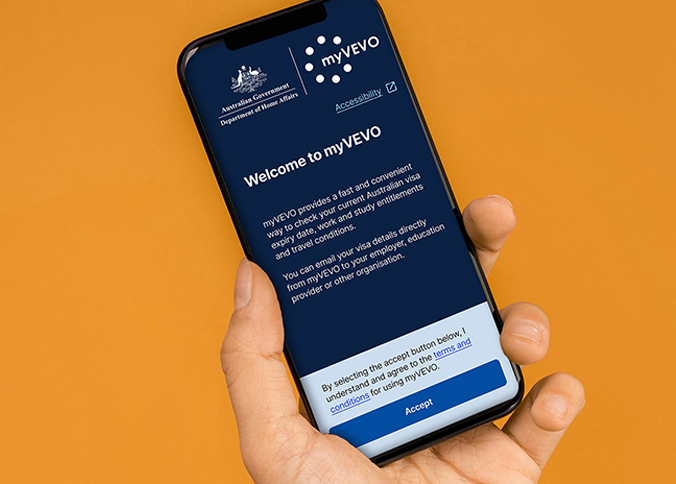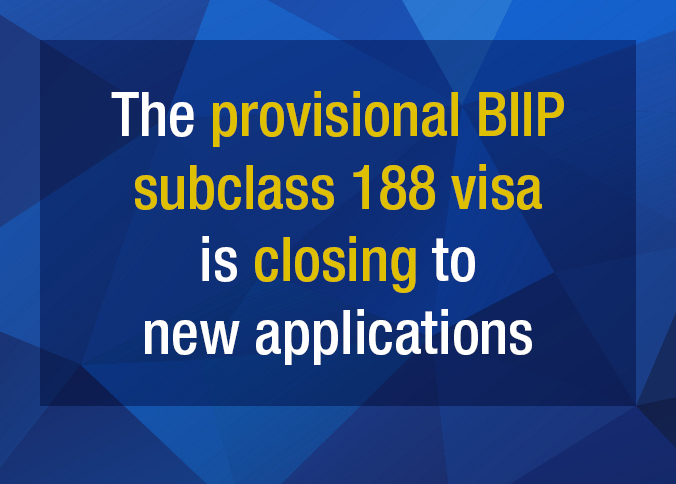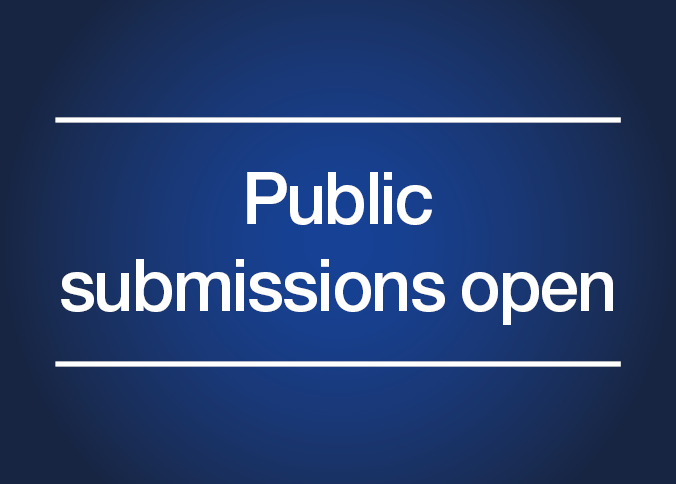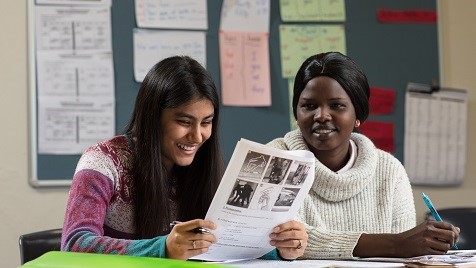From 1 July 2024, new citizenship application fees will apply. Fees are changing to reflect the cost of processing applications. On 1 July each year, indexation is applied to citizenship application fees based on the consumer price index (CPI).
The new fees apply to all citizenship applications received by the Department of Home Affairs (the Department) at or after 12 am (AEST) on 1 July 2024.
The new fees applicable from 1 July 2024 are set out in the table below. There will be no changes to the eligibility for fee exemptions.Citizenship application fees (effective 1 July 2024)Application typeFee from 1 July 2024 (amounts in AUD)
Australian citizenship by conferral—General eligibility (Form 1300t)Standard fee$560Concession fee*$80Child/children under 16 years applying on the same form as a responsible parent / Fee exemption^NilAustralian citizenship by conferral—Other situations (Form 1290)Standard fee$345Concession fee*$40Child/children under 16 years applying on the same form as a responsible parent / Fee exemption^NilAustralian citizenship by descent (Form 118)Single application / First sibling when two or more siblings apply$360Second and each subsequent sibling applying at the same time$150Australian citizenship for children adopted under full Hague Convention or bilateral arrangements (Form 1272)Single application / First sibling when two or more siblings apply$360Second and each subsequent sibling applying at the same time$150Renunciation of Australian citizenship (Form 128) Standard fee$300Resumption of Australian citizenship (Form 132)Standard fee$240Child/children under 16 years applying on the same form as a responsible parentNilEvidence of Australian citizenship (Form 119)Standard fee$275Application for replacement of evidence of Australian citizenship lost, destroyed or damaged due to a natural disasterNil* Fee concessions for forms 1300t and 1290.A fee concession is available to:Holders of a Pensioner Concession Card issued by the Australian Government (Services Australia or the Department of Veterans’ Affairs).Persons aged under 18 years listed as a dependant on a Pensioner Concession Card issued by the Australian Government (Services Australia or the Department of Veterans’ Affairs).To be eligible for the fee concession, applicants must provide a copy of both sides of their Pensioner Concession Card with their citizenship application.
If lodging a paper application the copy must be certified. For information on certifying documents see
Applying online or paper – Certified copy.^ Fee exemptions for forms 1300t and 1290.No fee is payable by:British or Maltese former child migrants who came to Australia without parents between 22 September 1947 and 31 December 1967 under the Commonwealth Child Migration Scheme. A letter from the Child Migrants Trust confirming details of arrival and sponsorship will need to be submitted with the citizenship application.Persons who have served for at least 90 days in the permanent forces of the Commonwealth of Australia. A letter or discharge papers from the Australian Defence Force specifying service dates will need to be submitted with the citizenship application.Persons applying under the Statelessness provision (section 21(8) of the Australian Citizenship Act 2007).For information on fee concessions or exemptions for Australian citizenship by conferral, see Fee concessions or exemptions.Online applicationsIf you apply online at or after 12 am (AEST) on 1 July 2024, you will pay the new fee. This is regardless of when you started the application. Your application is considered submitted when we receive it, along with the fee.If you apply online and pay by credit or debit card, PayPal, or UnionPay, your application and fee is generally received on the same day.Before submitting your application, make sure it includes all the supporting documents. If you submit an incomplete application, you may need to submit a new application and pay the relevant fee. ImmiAccount systems maintenanceOnline services, including ImmiAccount, may not be available if you are applying online between 2 pm (AEST) on 30 June 2024 and 9 am (AEST) on 1 July 2024 due to systems maintenance. You will need to consider this systems maintenance if you are applying online. If we receive your application at or after 12 am (AEST) on 1 July 2024, the new application fee will apply. There is no discretion for us to alter or waive fees in this situationPaper applicationsFor paper applications sent by post, an application is considered submitted on the date the Department receives the application, not the date the application form is posted. If we receive your application at or after 12 am (AEST) on 1 July 2024, the new fee applies.Please consider postage times. To avoid the risk of postal delays, we recommend applyin online where possible.If we receive your paper application without the full fee applicable on the date we receive it, we cannot consider your application until the correct fee has been paid.If you pre-paid a lower fee, but do not submit your application before the fee change, you can make a ‘top-up’ payment using ImmiAccount:My payments > Manage payments > Pre-pay Paper Service > Top-up payment.If you do not pay the ‘top-up’ amount, your application will be returned to you. You will need to submit a new application with the correct fee.
Immigration
From 1 July 2024, visa conditions 8107, 8607 and 8608 are changing in response to the Australian Governments
Migration Strategy. These changes address the commitment to help tackle worker exploitation and drive productivity.We have made improvements to support the labour market mobility of temporary migrants who have the following visas:Temporary Work (Skilled) visa (subclass 457)Temporary Skill Shortage visa (subclass 482)Skilled Employer Sponsored Regional (provisional) visa (subclass 494).Holders of these visas who stop working with their sponsoring employer will have more time to find a new sponsor, apply for a different visa or arrange to depart Australia. These visa holders will have up to:180 days at a time, ora maximum of 365 days in total across the entire visa grant period.During this time, visa holders can work for other employers. This includes work in occupations not listed in their most recently approved sponsorship nomination. This will ensure that visa holders can support themselves while they look for a new sponsor.Unless exempt, a visa holder cannot work for another employer unless they have ceased work with their sponsoring employer. Visa holders must remain in their nominated occupation while working for their existing sponsor.Sponsors must still let the department know if there is any change in situation within 28 days. This includes ceasing sponsorship or if a visa holder resigns. You can find more information at
Sponsorship obligations for Standard business sponsors.Visa holders must not do any work that is inconsistent with any licence or registration needed for their nominated occupation. This includes any conditions or requirements they are subject to.The changes apply to existing visa holders, as well as those granted a visa on or after 1 July 2024. Any periods a visa holder stopped working for their sponsor before 1 July 2024 will not count towards the new time periods outlined above.For more information on visa conditions, see
Check visa details and conditions.
myVEVO provides a fast and convenient way for visa holders to check their Australian visa details. This includes visa expiry date, work and study rights, and travel conditions.
From late June 2024 users will see some changes to the look and feel of the myVEVO app including the following enhancements:
enhanced design and flow making it easier to use
improved cyber security to further protect user accounts
increased readability and accessibility features for both Android and iOS devices.
You can download the myVEVO app free from the Apple App Store or Google Play.
The Government is focused on strengthening the integrity of the Student visa program. This will ensure we grant visas to genuine students and give students who receive qualifications in Australia opportunities to contribute to Australia’s economic growth.As part of the release of the
Migration Strategy, the government announced changes to Student visa eligibility. These changes will restrict certain temporary visa holders from applying for a Student visa while in Australia. From 1 July 2024, Temporary Graduate, Visitor and Maritime Crew visa holders will be unable to apply for a Student visa while in Australia. In addition to existing visas from which it is already not possible to apply for a Student visa onshore, the complete list of visa holders that will be unable to apply for a Student visa onshore are:
Subclass 485 (Temporary Graduate)
Subclass 600 (Visitor)
Subclass 601 (Electronic Travel Authority)
Subclass 602 (Medical Treatment)
Subclass 651 (eVisitor)
Subclass 771 (Transit)
Subclass 988 (Maritime Crew)Subclass 995 (Diplomatic Temporary) – primary visa holders only
Subclass 403 (Temporary Work) International Relations)) – Domestic Worker (Diplomatic or Consular) stream
Subclass 426 (Domestic Worker (Temporary) – Diplomatic or Consular)Visa hopping has contributed to a growing cohort of ‘permanently temporary’ former international students living in Australia. These changes, combined with other measures, will help to close this loophole and put an end to this practice.Temporary Graduate Visa holders should depart Australia, or find skilled jobs and/or other visa pathways, including those that may lead to becoming permanent residents of Australia. Visitor visa applicants who intend to study will be required to apply for their Student visa from offshore.
Student visa applicants genuinely intending to pursue studies in Australia can apply outside Australia. Those who meet the criteria will be granted a Student visa.
As part of the Migration Strategy, the Government announced that it would not provide any new allocations for the BIIP while a new talent and innovation visa was considered. The new National Innovation visa will be available at the end of 2024.We will close the BIIP permanently from July 2024. We will not accept any new applications for the Business Innovation and Investment (Provisional) (subclass 188) visa. The Migration Review found that the BIIP is delivering poor economic results for Australia. Studies including work by the Treasury and the Productivity Commission support this finding.We will process current Business Innovation and Investment (Provisional) (subclass 188) visa applications in line with Government priorities and Migration Program planning levels. We will also tighten BIIP policy guidance so that all business migrants coming to Australia must have had a successful business career and will bring an economic benefit to Australia.If you hold a subclass 188 visa and meet the criteria for the Business Innovation and Investment (Permanent) (subclass 888) visa you can continue on this pathway after July 2024.If you hold a subclass 188 visa in the Business Innovation stream or the Significant Investor stream you can still apply for the extension stream of the visa. This will give you more time to meet the requirements of the Business Innovation and Investment (Permanent) (subclass 888) visa.Refunds for the subclass 188 Visa Application Charge (VAC) will be available from September 2024 if you want to withdraw your application. The department will give more information on when to withdraw and how to ask for a refund when they are available.
Updated – Increase in the Temporary Skilled Migration Income Threshold (TSMIT) to $73,150
Raising the Temporary Skilled Migration Income Threshold
From 1 July 2024, the TSMIT will increase from $70,000 to $73,150. New nomination applications from this date will need to meet the new TSMIT of $73,150 or the annual market salary rate, whichever is higher.
This change will not affect existing visa holders and nominations lodged before 1 July 2024.
These changes are in line with the Government’s commitment at the Jobs and Skills Summit in September 2022.
More information
More information will be made available on future income thresholds and indexation methodology, including for the new Skills in Demand Visa, once finally determined later in 2024.
Updates regarding these changes will be published on the Department of Home Affairs website. Check the website regularly for more information.
Public submissions now open to inform Australia’s 2024-25 Humanitarian Program
The Department of Home Affairs publishes a Discussion Paper each year to provide an overview of Australia’s Humanitarian Program and seek public feedback on the management and composition of the Program.
The Humanitarian Program 2024-25 Discussion Paper is now available.
The Discussion Paper provides background information of the 2024-25 Program to inform public submissions by the community. Written submissions are now open and will close at 5pm on 7 June.
The Government is committed to generous and flexible Humanitarian and Settlement Programs that meet Australia’s international protection obligations, and position Australia as a global leader in international resettlement efforts.
For more information, visit Australia’s Humanitarian Program 2024-25.
Increase to the Financial Capacity Requirement for Student and Student Guardian visas
From 10 May 2024, the amount of money that Student and Student Guardian visa applicants need to have to be eligible for the visa is increasing.The financial capacity requirement has been updated to align with a proportion (75 per cent) of the national minimum wage. This will better indicate the amount of money considered reasonable to provide a minimum standard of living while studying in Australia. This proportion considers that students are out of course session for 25 per cent of the year. During this time they may return home or have access to unrestricted work.International students who can show they meet this new financial capacity requirement are better able to make informed decisions about their future.Students are less likely to:be in financial distress once in Australiabreach their visa conditions by working more hours than their visa conditions allowbe vulnerable to worker exploitation.The below table outlines the funds you need to show to meet the minimum financial capacity requirement, which will be changed from 10 May 2024.Minimum required funds to meet financial capacity requirements
Financial capacity requirement before 10 May 2024Financial capacity requirement after 10 May 2024
primary applicantAUD24,505AUD29,710spouse or de facto partner of the Student primary applicant (not applicable to Student Guardian applicant)AUD8,574AUD10,394dependent childAUD3,670AUD4,449annual school costsAUD9,661AUD13,502personal annual income if there is no member of the familyAUD72,465AUD87,856personal annual income where there is a member of the family unitAUD84,543AUD102,500 We will assess applications lodged before 10 May 2024 under the financial capacity requirements in effect at the time of application.For more information, see
Subclass 500 Student visa and
Subclass 590 Student Guardian visa.
From 23 March 2024, the Genuine Student (GS) requirement replaces the Genuine Temporary Entrant (GTE) requirement for Student visas.
This change was announced as part of the Australian Government’s Migration Strategy released on 11 December 2023 and applies to all Student visa applications lodged on or after 23 March 2024.
The purpose of this amendment is to clarify the assessment of a student’s intention to genuinely study in Australia and to remove the confusion about whether the student can express a desire to migrate to Australia.
Student visa applicants no longer need to satisfy the GTE requirement that they genuinely intend to only stay in Australia temporarily.
The GS requirement acknowledges that post-study pathways to permanent residence are available to those eligible graduates. International students with studies and qualifications obtained in Australia may provide a qualified skilled workforce ready to fill skill shortages in Australia.
The change is also intended to help the Department to identify non-genuine students who are seeking to enter Australia for purposes other than to study.
The GS requirement focuses on the assessment of the student’s genuine intention to study in Australia, having regard to a number of factors, including the applicant’s circumstances, evidence of course progression, immigration history, compliance with visa conditions and other relevant matter.
The GTE requirement will be retained for Student Guardian visa applicants.
For more information see Genuine Student requirement.
The Australian Government has made changes to English Language Requirements for Student and Temporary Graduate visas.
This change was announced as part of the Australian Government’s Migration Strategy released on 11 December 2023 and applies to all Student and Temporary Graduate visa applications lodged on or after 23 March 2024.
The Migration Strategy outlined how the English language reforms for student visas will support international students to have a positive educational experience in Australia, and prepare them for the skilled workforce should they wish to apply for a graduate visa post study.
Temporary Graduate visa (TGV)
The minimum score required for a TGV from IELTS test score increases from 6.0 to 6.5 (or equivalent), with a minimum score of 5.5 for each component of the test (reading, writing, speaking and listening).
The test validity window for a TGV decreases from 3 years to 1 year. TGV applicants now need to provide evidence that they have completed an English Language test within 1 year immediately before the date of the visa application.
Student visa
The minimum score required for a Student visa from an IELTS test score increases from 5.5 to 6 (or its equivalent).
The minimum score required to undertake a packaged ELICOS from IELTS increases from 4.5 to 5.0.
For students studying English only through ELICOS, there will be no change.
The test score required for students undertaking university foundation or pathway programs that deliver reputable English language training will be IELTS 5.5 (or equivalent).
Increasing English language requirements for students undertaking VET and higher education courses requires a similar increase in score for those taking packaged ELICOS courses.
This ensures that students can transition successfully into their main course, with the appropriate level of English.
For more information on changes to the English Language requirements for a student, see Meet English language requirements.

![australian-citizenship-green[1]](https://www.namastemelbourne.com/wp-content/uploads/2024/10/australian-citizenship-green1.jpg)
![airport[1]](https://www.namastemelbourne.com/wp-content/uploads/2024/10/airport1.jpg)







